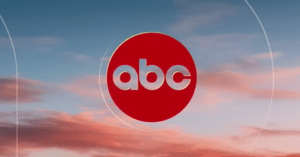These days, Netflix is more or less a necessity for every entertainment-viewing house, but there are still a few moves the company could make to lose its massive audience.
Netflix has grow into a massive international juggernaut since it first formed in 1997. The company was one of the first big players in the streaming industry, and maintains its dominance to this day.
Videos by PopCulture.com
However, over the years Netflix’s strategy for building an audience and keeping their interest has changed. When it first offered streaming video, subscribers marvelled that they could watch the pre-existing content they knew and loved whenever they wanted, without waiting for DVDs to come and go in the mail.
Since then, the company has put more and more resources into producing and promoting original content. Now many fans not only expect Netflix to show them shows they love, but to create new ones as well.
That tactic has been hit or miss for Netflix. Last month, the company stirred up a wave of anger when they announced a partnership with Barack and Michelle Obama. The former president and first lady are contracted to produce a number of films and series, both scripted and documentary-style over the next several years. They will reportedly focus on civil engagement and other major issues facing society today.
Canceling Netflix account remember Benghazi #CancelNetflix pic.twitter.com/t936EKMHsK
— Gobav.com (@Gobav) June 5, 2018
Of course, this announcement enraged certain outspoken conservative factions of Twitter. In particular, conspiracy theorists became convinced that this was further evidence that a “deep state” government was collaborating with the entertainment industry to control the fate of the nation.
Users rallied behind hashtags like “Cancel Netflix,” promising to boycott the service for its deal with the Obamas. Ultimately, the outcry had little effect on the massive corporation’s business.
However, it did raise some questions about what exactly it would take for subscribers to give up on Netflix. At this point, the constant access to programming is a necessary as running water, and many can’t imagine their houses without it. Here is a look at some of the extreme measures Netflix would have to take to really affect its business.
Mandatory Breaks
Netflix already flashes a periodic “are you still watching?” message when several TV episodes autoplay in a row. The alert is a source of indignance for many viewers, who don’t appreciate being “judged” for their binge-watching habits. It has become the center of many memes.
“Are you still watching”
— ? (@_sssmudge) May 31, 2018
Look Netflix, I’ll tell you when I’ve had enough
If the streaming service were to take this even further, imposing an intermission on serial binge-watchers to make them go outside or deal with their problems, they would undoubtedly lose some business. It would be reminiscent of the alert that popped up now and again on the Nintendo Wii, encouraging players to take a break.
Commercials
Going from Netflix to cable and having to watch commercials drives me crazy pic.twitter.com/56hG7jWO3o
— SkincareGURU (@guru_skincare) June 7, 2018
Among the biggest breakthroughs of Netflix was doing away with commercials altogether. Because users pay a subscription fee straight to the company, they have no need to run ads. Now that customers are used to this lifestyle, however, it would be impossible to go back on it. Some might pay a premium price for an ad-free service, but others would abandon ship.
Forcing People to Watch What Their Friends Watch

Netflix has embraced the fact that users often share accounts with friends or family, but what if they made those people watch the same things? Many users would be horrified to see what their fathers, mothers, sisters and brothers have added to their “My List” section.
Raising Prices

Of course, Netflix is always under fire for raising its prices. These days, it offers a few pricing tiers based on the number of screens subscribers want to be able to watch on simultaneously. Right now, its still not nearly as expensive as most cable packages, but if that were to change, it could spell the doom of the streaming giant.
Shaming Customers for Re-Watches

Netflix keeps careful track of what you’ve watched. It even saves your place in an episode or a movie. There’s a fine line between this and shaming customers, however. If the service were to point out a little too candidly when a customer has watched something before, they might start to feel personally called out. For fear of being mocked, subscribers would either have to stop re-watching The Office over and over again, or give up on Netflix.
Responsibility Checklist

Netflix is a place of escape for many people. It’s where they go to hide from their problems. This is fine in moderation, but some people have looked up from a long sitcom binge to find their bills are overdue, they’ve fallen behind on work, and they’re completely out of shape. Netflix could offer reminders of the important things in life as people settle in for some TV, but if they did, they might lose some subscribers.
Constant Buffering
All I want to do is watch The Office on Netflix, but because I have @HughesNet, all I get is buffering. ? #hughesnet pic.twitter.com/WZT3SUKeAW
— Stacy’s Stories (@SunWoodsLife) June 7, 2018
One of the most remarkable things about Netflix is how it works seamlessly most of the time. It rarely stops to buffer and it adjusts the picture quality to fit the device and the connection strength it is being played on. If the service suddenly became focused on high picture quality, and it buffered on poor Wi-Fi connections, people might drop it in favor of something more grainy and reliable.
Increasing the Frequency of the ‘Are You Still Watching?’ Message
Netflix: Are you still watching?
— They Call Me Neeks (@niko_del_rey) June 6, 2018
Me: YES OF COURSE IM STILL WATCHING. IM A FREAKING ADDICT, DONT ASK ME AGAIN.
The “Are You Still Watching?” alert from Netflix is the bane of many peoples’ existence. For some, it is the display that greets them in the morning when they wake up, dazed after falling asleep watching Friends for the umpteenth time. Thankfully, the message only comes after several consecutive episodes autoplay in a row. If that became more frequent, however, there would be some unhappy customers.
Netflix has asked me “are you still watching” for the 10th time today ??♂️
— Victor Leyva (@theslick_vic) June 7, 2018
I have no life….
Publishing What Users Watch

Finally, Netflix could take the route of Spotify, or other media providers that try to add a social media angle to their service. If peoples’ Netflix history automatically posted to their Facebook newsfeed every once in a while, they might think twice about spending so many hours on the couch, watching and re-watching TV and movies. Or, more likely, they might drop cancel their subscription and opt for a more private service.
Most Viewed
-

WINDSOR, UNITED KINGDOM – APRIL 20: (EMBARGOED FOR PUBLICATION IN UK NEWSPAPERS UNTIL 24 HOURS AFTER CREATE DATE AND TIME) Prince Andrew, Duke of York attends the traditional Easter Sunday Mattins Service at St George's Chapel, Windsor Castle on April 20, 2025 in Windsor, England. (Photo by Max Mumby/Indigo/Getty Images) -

Beverly Hills, CA – January 31, 2026: Jelly Roll, left, and Bunnie Xo, right, pose for portraits on the red carpet during the 68th GRAMMY Awards Pre-GRAMMY Gala & GRAMMY Salute to Industry Icons Honoring Avery Lipman & Monte Lipman at the Beverly Hilton on Saturday, Jan. 31, 2026 in Beverly Hills, CA. Clive Davis’ annual pre-Grammy party hosts an array of A-listers from entertainment, sports, and politics to come together and enjoy performances. (Kayla Bartkowski/ Los Angeles Times)






